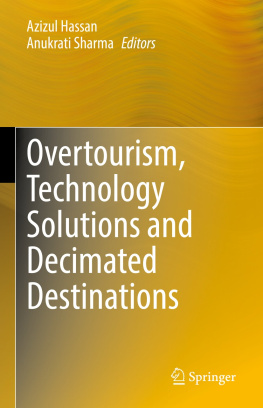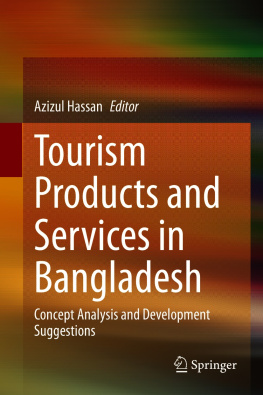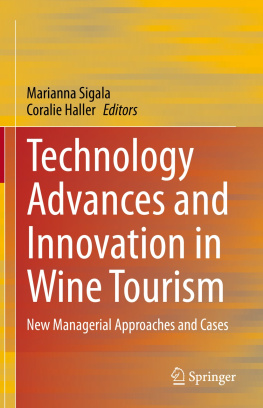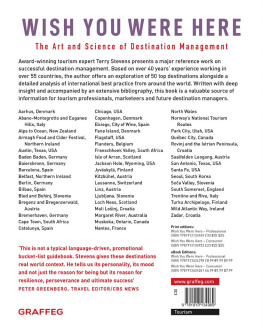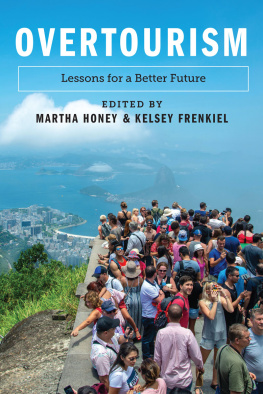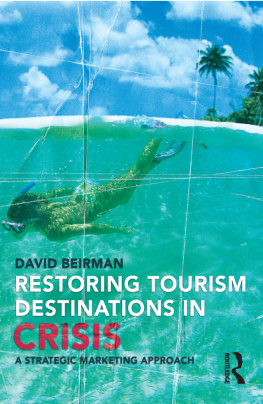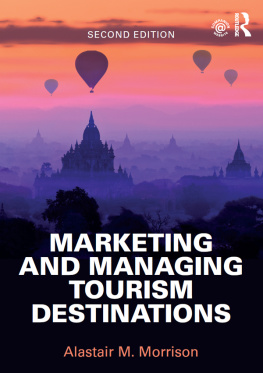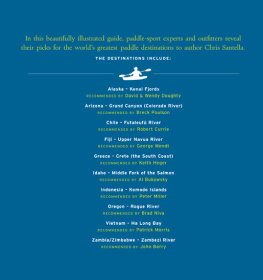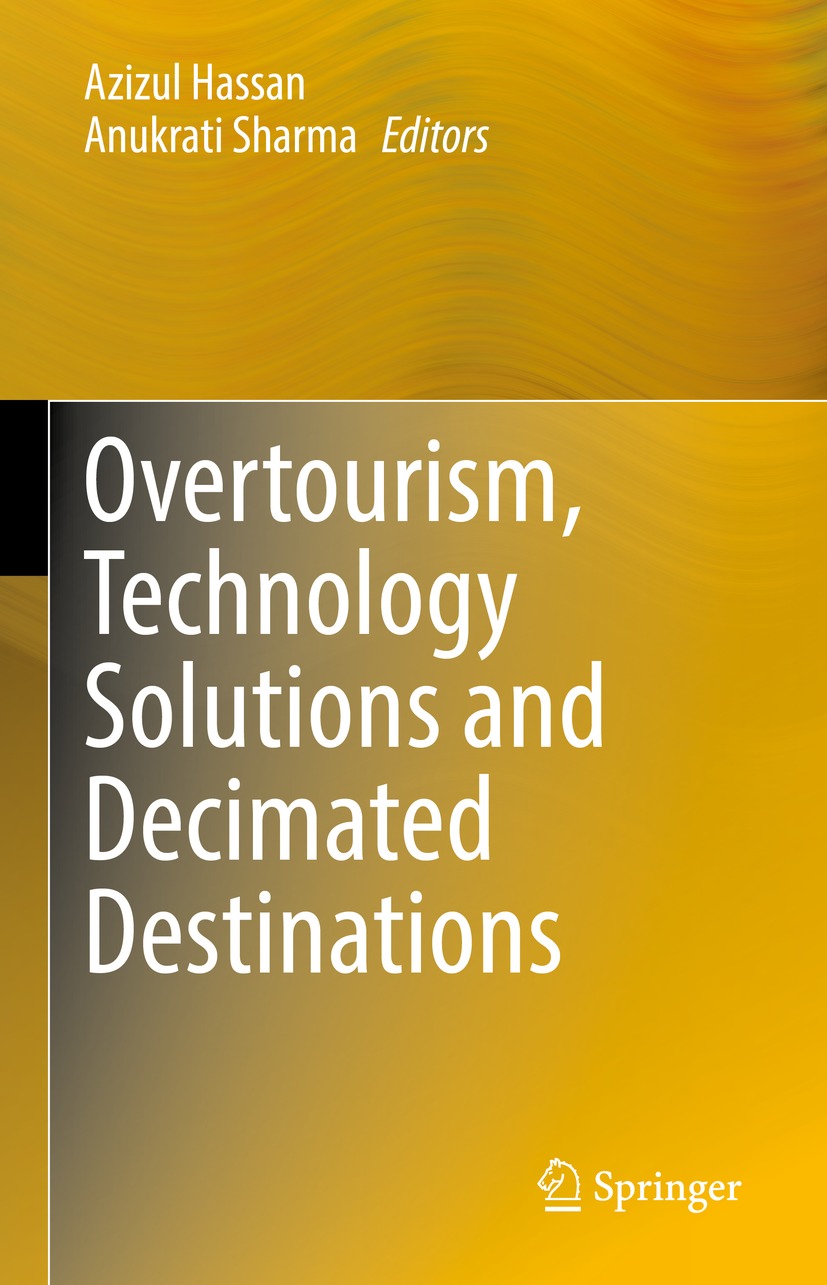Editors
Azizul Hassan
Tourism Consultants Network, The Tourism Society, London, UK
Anukrati Sharma
Department of Commerce and Management, University of Kota, Kota, Rajasthan, India
ISBN 978-981-16-2473-5 e-ISBN 978-981-16-2474-2
https://doi.org/10.1007/978-981-16-2474-2
The Editor(s) (if applicable) and The Author(s), under exclusive license to Springer Nature Singapore Pte Ltd. 2021
This work is subject to copyright. All rights are solely and exclusively licensed by the Publisher, whether the whole or part of the material is concerned, specifically the rights of translation, reprinting, reuse of illustrations, recitation, broadcasting, reproduction on microfilms or in any other physical way, and transmission or information storage and retrieval, electronic adaptation, computer software, or by similar or dissimilar methodology now known or hereafter developed.
The use of general descriptive names, registered names, trademarks, service marks, etc. in this publication does not imply, even in the absence of a specific statement, that such names are exempt from the relevant protective laws and regulations and therefore free for general use.
The publisher, the authors and the editors are safe to assume that the advice and information in this book are believed to be true and accurate at the date of publication. Neither the publisher nor the authors or the editors give a warranty, expressed or implied, with respect to the material contained herein or for any errors or omissions that may have been made. The publisher remains neutral with regard to jurisdictional claims in published maps and institutional affiliations.
This Springer imprint is published by the registered company Springer Nature Singapore Pte Ltd.
The registered company address is: 152 Beach Road, #21-01/04 Gateway East, Singapore 189721, Singapore
Introduction
Azizul Hassan
Anukrati Sharma
Emerging technologies have created a low-cost and convenient way to travel, but most tourist cities do not keep pace with handling the increased flows of tourists. Overtourism Many of the worlds most attractive cities are affected by overtourism, since they are typically unable to deal with huge crowds of visitors encouraged by low prices and easy mobility, but the same Information and Communications Technology (ICT) sector is now called on to provide smart solutions to deal with overtourism and escape the congestion of city centers. Residents are alienated as a result of rising pricing, low-cost housing, congested infrastructure, excessive water and resource use, noise pollution, waste, and environmental and cultural heritage destruction. Although emerging technologies are part of the issue, smart ICT solutions can provide an escape strategy, as peer-to-peer applications and social media have encouraged a focus on a limited number of over-visited destinations . Literature studies evident the application of technologies for dealing overtourism .
Bourliataux-Lajoinie, Dosquet and del Olmo Arriaga (2019) aimed to deliver a three-pronged reflection in major cities such as Barcelona on overtourism . The research outlined how technology can influence overtourism and ultimately how to use technology to fix the issue. The research found that the quick distribution of feedback and reviews about attractions and venues is the most important feature. These modern developments have a dark side, despite the interest in the generalisation of ICT. Closely linked to trends in fashion, some tourist destinations are easily overbooked. According to Camatti, Bertocchi, Cari, and van der Borg (2020), Tourism Carrying Capacity (TCC) of a destination is an important reference point in order to design successful responses to the complex phenomenon of overtourism . This paper presents an in-depth analysis of this connection with Dubrovnik. The research applies a model of TCC estimation that can provide the key effects of overtourism quantitatively. The paper demonstrates how these findings can be used to simplify specific decongestion policies through conceptualizing a real-time intervention automated response framework to minimise the adverse effects of overtourism . World Travel & Tourism Council (WTTC) (2018) also has already spotted the relevancy and necessity of emerging technologies and practices (i.e., Wi-Fi; tourists dispersing; speeding and flow control; digital and augmented reality etc.) to help dealing with overtourism . More research studies are required to cover these aspects comprehensively.
In order to see a new viewpoint on overtourism , technology solutions, and decimated destinations , the book is a rare mix of positive, plentiful, and enduring recommendations. This book meticulously focuses on seeing technical solutions in a new trend of overtourism on decimated destinations . Therefore, it will be a forum for addressing the steps that need to be taken to resolve the issue of the most recent COVID-19 and overtourism crisis. The book also explains the duties of tourists towards their decimated destinations . The book offers in-depth awareness of technical solutions for understanding the overtourism problem in decimated destinations . This book comes with 21 chapters in seven parts (i.e., overtourism and technology; social media images; marketing and promotion; psychology, community and environmental issues ; challenges; and possible solutions). Summaries of these chapters are presented below:
In chapter one, Sraphin theorizes emerging innovations to counter overtourism as future incremental management tools. According to the author, overtourism has highlighted three key things as a global problem: (1) Tourism is not the solution for all socio-economic challenges facing destinations (2) Sustainability is still an issue to be tackled by the tourism industry (3) Incremental strategies are not the way forward for the sustainability of the industry (as opposed to drastic strategies). As a consequence, this chapter indicates that new technologies (incremental strategies) could contribute to combating overtourism , but only if a driver of fundamental and drastic changes (radical changes) such as an external shock is substantiated ( COVID-19 , for instance). In that case, it would be possible to assimilate emerging developments with an amplifier and external shock as a motor. This conceptual chapter, based on secondary data (literature review), offers an overview of overtourism research and new tourism technologies . The chapter then offers proof that new technologies act only as enablers but not as evolving motors. Finally, taking wedding tourism as an example, this chapter demonstrates that COVID-19 , as an external shock, is driving the industry towards dramatic changes in which technology might theoretically play a significant role, as opposed to gradual strategies ( new technologies ). This research provides a strategy (theory) that has not previously been proposed to counter overtourism , namely the combination of gradual (enablers) and radical (drivers) strategies. This technique comes under the methodology of ambidextrous management.

